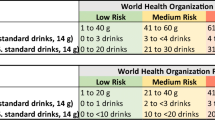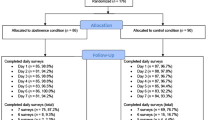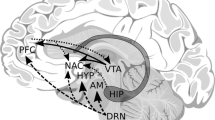Abstract.
Rationale: Although well characterised in animals, relatively little is known about alcohol discriminative stimulus effects in humans. Objective: The study was carried out to investigate the correspondence of subjective effects and the discriminative response during the acquisition of a low dose alcohol discrimination in humans. Methods: Healthy volunteers completed an Alcohol Use Questionnaire and were then trained to discriminate a dose of 0.2 g/kg alcohol from placebo using a money reinforced technique. Subjects sampled drinks during training, but also completed rating scales measuring Taste, Like/Dislike and Subjective Effects for each drink. Results: Thirty-two subjects learned the discrimination (discriminators; Ds). In these subjects, differences between placebo scores and alcohol scores for Lightheadedness, Relaxed, Arousal and Fatigue were greater following acquisition of the discrimination, compared with differences at the start of training. Differences in other measures remained consistent. Twenty-six of the volunteers failed to learn the discrimination (non-discriminators; NDs). These subjects reported drinking approximately twice as much alcohol during the preceding 6 months, as the Ds (4.35±0.53 g/kg per week versus 2.08±0.19 g/kg per week, respectively, P<0.001). There were no alcohol specific differences in ratings for Lightheadedness, Relaxed, Arousal or Fatigue between the Ds and the NDs. However, Dislike scores did differentiate between the Ds and the NDs in that the NDs had reduced ratings for the alcohol drink only compared with the Ds (P<0.02). Conclusions: These results support the suggestion from animal studies, that the alcohol stimulus is a compound, and characterise the subjective effects which contribute to a low dose cue in humans. In addition, the data suggest that previous drinking experience may selectively alter aversive responses to alcohol and that this, in addition to differences in general arousal levels, may have affected subjects' ability to learn the discrimination.
Similar content being viewed by others
Author information
Authors and Affiliations
Additional information
Electronic Publication
Rights and permissions
About this article
Cite this article
Jackson, A., Stephens, .D. & Duka, .T. A low dose alcohol drug discrimination in social drinkers: relationship with subjective effects. Psychopharmacology 157, 411–420 (2001). https://doi.org/10.1007/s002130100817
Received:
Accepted:
Issue Date:
DOI: https://doi.org/10.1007/s002130100817




